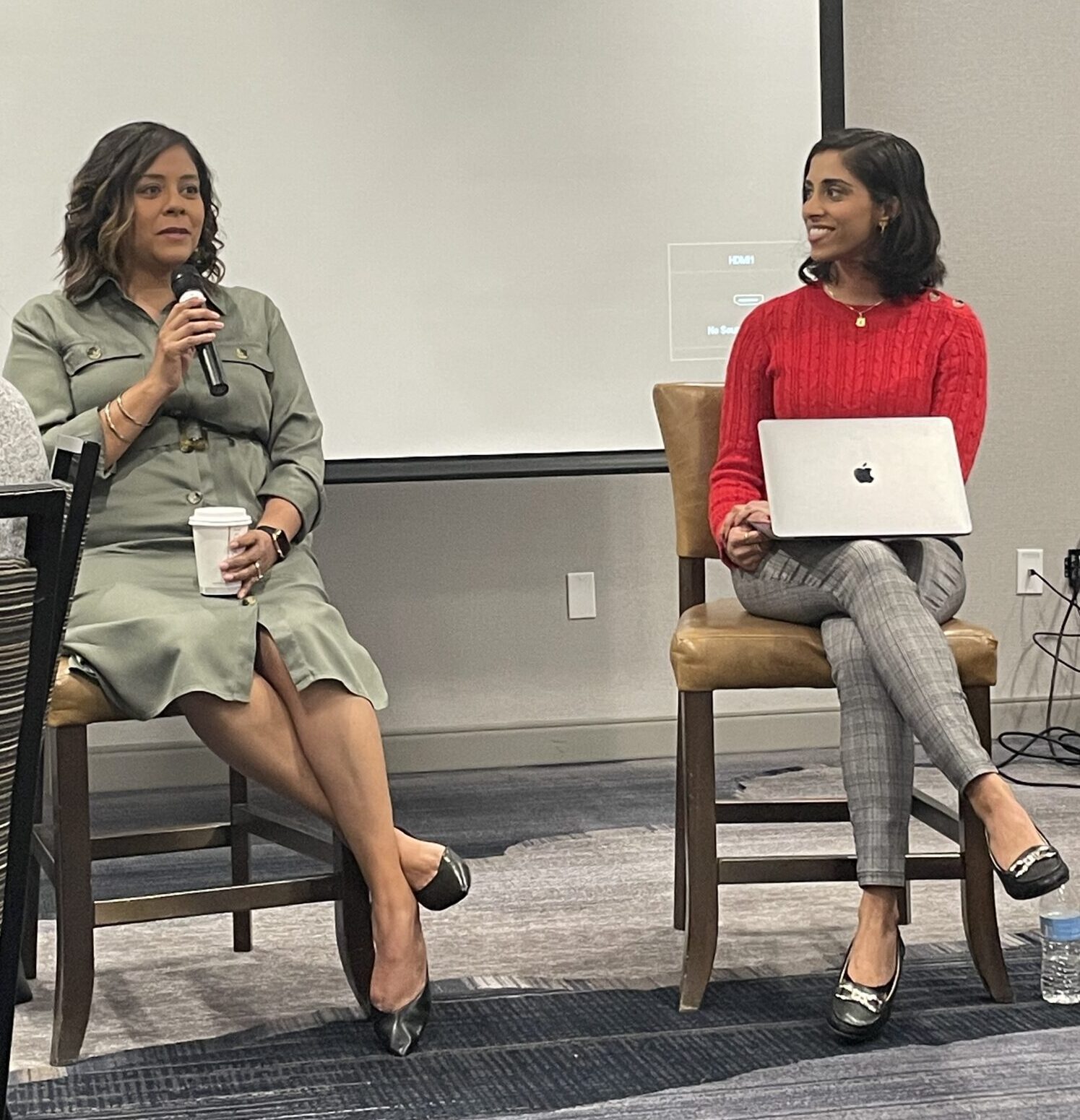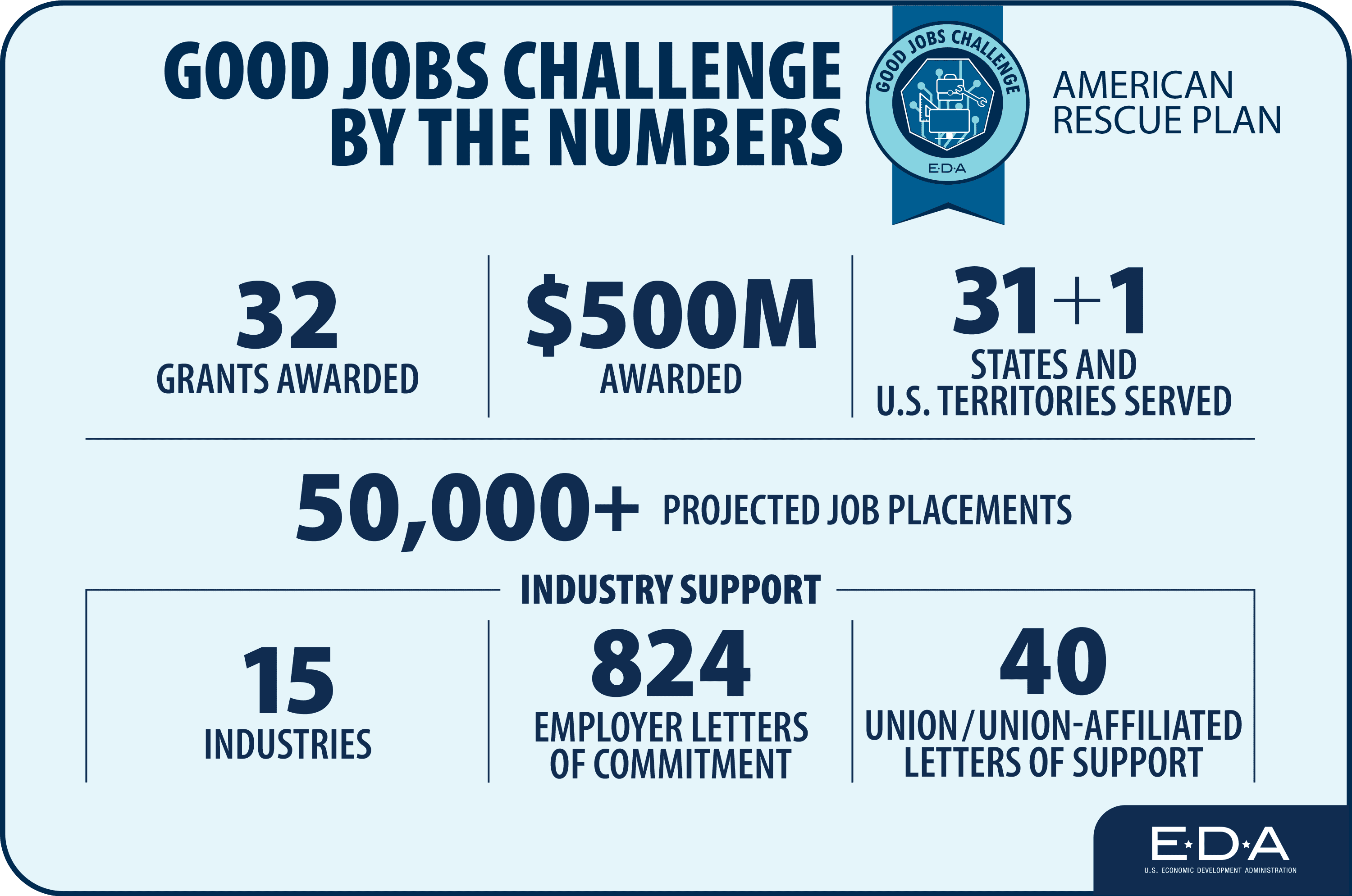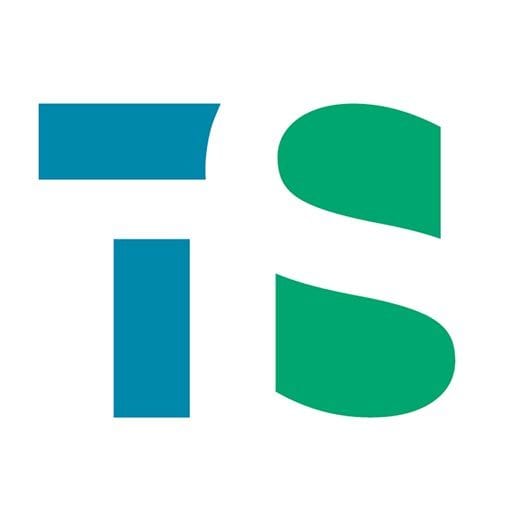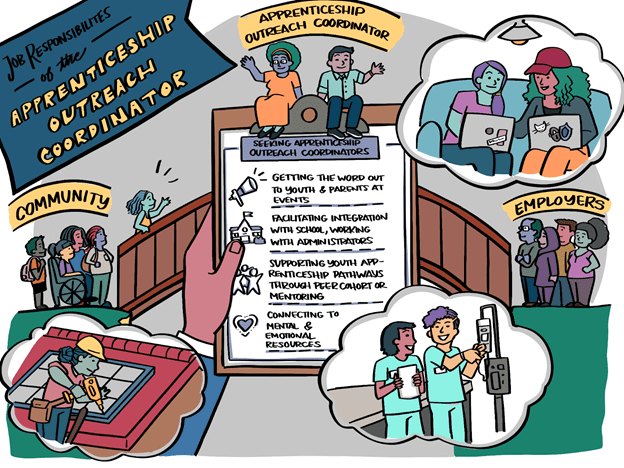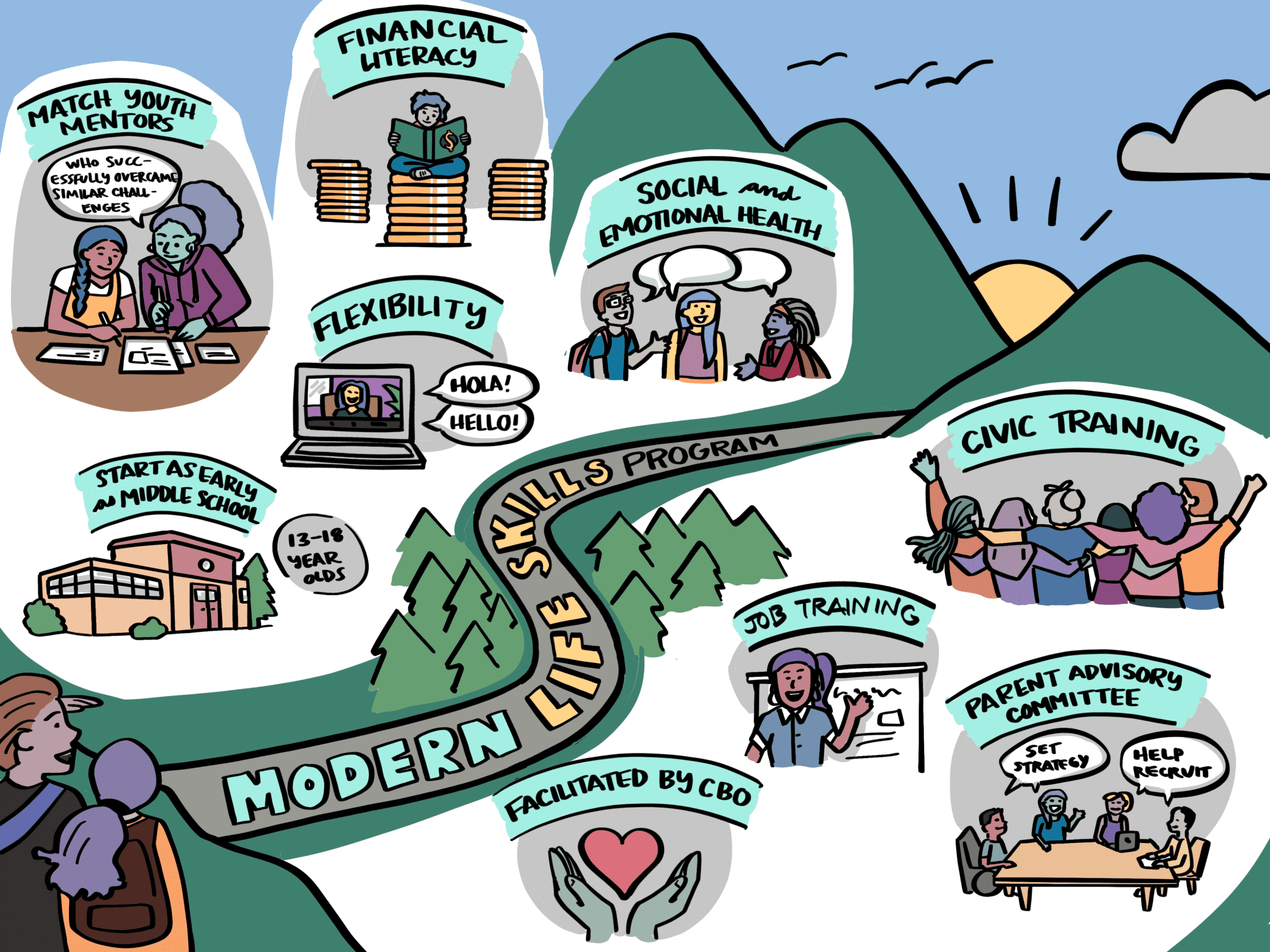Third Sector and U.S. Chamber of Commerce Foundation Announce Four-State Cohort to Develop Lifelong Learning Account (LiLA) Pilots
This month, Third Sector and the U.S. Chamber of Commerce Foundation announced the selection of four state cross-sector teams in Indiana, Michigan, Tennessee, and Texas into the National Lifelong Learning Account (LiLA) cohort. Participants will design innovative LiLA pilots for their states, which will provide working people with access to education and training opportunities to grow, or build new careers. LiLAs are a new concept for financing education and training. These accounts enable individuals to get the education, upskilling to deepen existing skills in a chosen field, and/or re-skilling to …
Third Sector and National Governors Association to Expand SNAP E&T Programs
This month, Third Sector will launch a new project with the National Governors Association (NGA) and Seattle Jobs Initiative (SJI) to identify and address statewide barriers to successfully and equitably implementing Supplemental Nutrition Assistance Employment and Training (SNAP E&T) to increase the number of third-party SNAP E&T providers in 8-10 states. SNAP E&T is a federal program each state administers to help SNAP recipients gain skills and find work that moves them toward economic mobility. While every state is required to administer a SNAP E&T Program, they employ many different …
“Education is the one thing that can’t be taken from you…” A Fireside Chat with Third Sector Client Dr. Cynthia Armendariz, Managing Director of the Colorado Opportunity Scholarship Initiative
Third Sector values deep and authentic relationships – amongst our staff as well as with our partners and clients. We had an opportunity to reflect on these relationships during our Spring 2023 Retreat where we focused as a team on “Why we do the work.” It was a privilege to welcome our long-time client, Dr. Cynthia Armendariz, Managing Director of the Colorado Opportunity Scholarship Initiative, to the retreat for a conversation with Alysha Alani, our Director, Economic Mobility, about her expertise in the college access and success field and her experience working with …
Prioritizing Peers with Lived Experience to Address the Behavioral Health Workforce Crisis
As the demand for behavioral health treatment skyrockets alongside rising staff vacancy rates, behavioral health agencies are facing a true crisis in building enough capacity to meet the need. After an extensive literature review and working with more than a dozen behavioral health agencies, Third Sector believes one of the most strategic shifts agencies can make to confront this crisis is to invest heavily in roles for individuals with lived experience, known as peers. Increasing peer positions and expanding peer responsibilities not only provides necessary staffing capacity, but is also …
Cuyahoga County Council Approves National Guard PFS Contract
On December 6, the Cuyahoga County Council in Ohio unanimously approved a three-year Pay for Success (PFS) contract that will provide college access and success coaching services to National Guard service members in the Cleveland Metropolitan area and surrounding areas who are looking to obtain a higher education credential that furthers their career aspirations. Since 2019, Third Sector has been working with the Ohio Department of Higher Education (ODHE) and Cuyahoga County’s Department of Health and Human Services (DHHS) to improve enrollment, persistence, and completion outcomes for Ohio National Guard …
Third Sector joins teams in Massachusetts and Texas to implement workforce programs through the U.S. Department of Commerce’s Good Job Challenge
Third Sector Capital Partners (Third Sector) is excited to join two multi-sector teams in Massachusetts and Texas to implement transformative workforce programs that will secure good jobs for more than 1,600 people. This is part of a larger initiative by the Department of Commerce to build and expand regional workforce development systems in critical sectors. Together with our partners in Texas and Massachusetts, we will build sectoral partnerships that help employers identify the working people they need while also equipping job seekers, specifically people from underserved and historically marginalized communities, …
Rethinking Step Down: The Next Step in Transforming Mental Health Services
At Third Sector, our mission is to transform our government agencies’ ability to serve everyone in our communities, no matter their race, background, or circumstance. And one of the most exciting and challenging things about this work is how trying to solve one set of problems reveals some other challenges we might not have understood in the same way. This is particularly true in the work we’ve been doing over the last five years in California to transform how nine counties in the state are serving and supporting tens of …
Three States Join Nationwide Partnership to Advance Adult Higher Education Attainment
Alabama, Michigan, and Rhode Island have joined the Partnerships to Achieve Student Success (PASS) cohort of states that are envisioning a future in which adult learners, many of whom have some college education but no degree, obtain a credential or a degree that will help them to build a career of their dreams. Everyone, no matter their age, race, zip code, or educational background deserves to get the education and the career they want. And more than ever, the best paying jobs require some kind of post-HS education, whether that’s …
Too Many States Aren’t Ready to Launch 988, the New National Crisis and Suicide Prevention Hotline
In less than six months, a new mental health crisis and suicide prevention number, 988, will go live nationwide. This new tool could provide people in crisis with a number to access trained counselors who can help immediately. But right now, most states are not as prepared as they should be. Unless states act now, the current patchwork of crisis response numbers and hotlines could get even more complicated, which means that states may not be able to provide support to everyone as the law intended. In 2020, Congress passed …
Building a Movement: California Counties Come Together to Improve Mental Health Outcomes
As the mental health crisis continues to grow across the country, a group of eight California counties are taking an innovative approach to transforming critical mental health services. Over the past two years, counties have partnered to design ways to serve people more effectively and equitably as part of the Multi-County Full Service Partnership (FSP) Innovation Project. These improvements, which counties finalized in November 2021, have the potential to increase the consistency, quality, and effectiveness of care for Californians with the most serious mental health needs. Partnering for Change In …
Los Angeles County Department of Mental Health Leading Effort for New Outcomes-Focused Mental Health Contracts Serving More Than 15,000 Residents with Serious Mental Illness
FOR IMMEDIATE RELEASE $300 Million in Full Service Partnership Contracts Represent the Largest Transformation of Mental Health Service Contracts in the Nation October 21, 2021 LOS ANGELES, CA – The Los Angeles County Department of Mental Health (LACDMH) is leading the way in new outcomes-focused Full Service Partnership (FSP) program contracts designed to advance a “whatever it takes” approach to caring for approximately 15,000 individuals in LA County with serious mental illness. Representing the largest system of outcomes-focused mental health service provider contracts in the nation, the redesign of LACDMH’s …
Better Careers Design Group Spotlight: Team Inland Empire August 2021
The Better Careers Design Group is a multi-year project funded by The James Irvine Foundation focused on developing solutions to local workforce problems elevated through community engagement. The goal of the Design Group project is to support the work of the Irvine Foundation’s Better Careers initiative to equitably connect Californians to good jobs with family-sustaining wages and advancement opportunities. Twenty organizations participate in the Design Group, divided into four local teams based on geography: Alameda, Central Coast, Inland Empire and Los Angeles. We’ll be publishing a series of spotlights on …
Better Careers Design Group Spotlight: Team Central Coast June 2021
The Better Careers Design Group is a multi-year project funded by The James Irvine Foundation focused on developing solutions to local workforce problems elevated through community engagement. The goal of the Design Group initiative is to equitably connect Californians to good jobs with family-sustaining wages and advancement opportunities. Twenty organizations participate in the Design Group, divided into four local teams based on geography: Alameda, Central Coast, Inland Empire and Los Angeles. We’ll be publishing a series of spotlights on each Local Team to highlight these solutions, and the hard work …
A Renewed Promise for Performance-Based Contracting: What DOL’s New Pay-for-Performance Guidance Means for State and Local Workforce Boards
The Time for Performance-Based Contracting is Now!With a misdemeanor on her record, Michelle was struggling to maintain stable housing and a job while also raising her two children. She had previously worked in retail but had always had an interest in healthcare. With coaching, tuition assistance, transportation stipends and milestone-based gift card incentives enabled by the Northern Virginia Team independence (NVTI) program, Michelle was able to complete her GED, train for and pass the Nurse Aide exam and secure a position as a Nurse Assistant immediately after completing the program. …
A transformational gift to support Third Sector’s work
When we started Third Sector 10 years ago, my co-founder George Overholser and I saw that there was a big disconnect among government-funded human and social service programs, the communities those programs were designed to serve, and the philanthropic efforts designed to address some of the nation’s most persistent challenges, including health, homelessness, education, and workforce development. There’s no doubt that social service delivery is serious, complex, and expensive — but the trillions of dollars being spent by government and philanthropy every year weren’t connected to results, and the government …
Innovative Approaches to Deploying Federal Childcare Relief Funding Third Sector has partnered with the Connecticut Office of Early Childhood and Massachusetts Department of Early Education and Care to develop a funding model for federal relief funds with intentional incentives for advancing equity and quality.
Third Sector has partnered with the Connecticut Office of Early Childhood (CT OEC) and Massachusetts Department of Early Education and Care (MA EEC) in developing a funding model for allocating federal relief funds, including ARPA, with intentional incentives for advancing equity and quality. State-level early care and education (ECE) agencies are in the midst of allocating billions of dollars in federal relief funding while also continuing systems reforms efforts intended to stabilize providers and improve outcomes for children. Many states are eager to allocate their relief funding, especially from the …
Five Takeaways on Using Human Centered Design to Improve Service Delivery Southeast Cohort on Young Parents and Families
Centering Young Parents While having a child can undoubtedly be a positively life-changing experience, it can also bring a tremendous amount of responsibility and stress in making sure that child is cared for. This stress is amplified for young parents in the foster care system as they run the risk of having their children separated from them if no placement options exist for whole families. They must navigate applying to multiple child care options and making postnatal doctors appointments, all while attending school or keeping up with their employment. As …
Economic Mobility in Practice: How A Focus on Outcomes Changes Everything
Meet a Young Woman we call Rose. Rose is a representative composite of the 4.6 million Americans between 16 and 24 who don’t have full-time employment and are not in school. Like many of her peers, Rose has been juggling several part-time minimum-wage jobs while also serving as the primary caregiver of Samuel, her 2—year-old son. Rose knows that she needs to find a better job – ideally one that leads to a career with benefits and a living wage so that she can adequately care for Samuel. Her old foster …
Partnering to Achieve Student Success Recruiting for a Second National Cohort in Higher Education
In the midst of the COVID-19 pandemic, college enrollment is down nationwide, with the National Student Clearinghouse reporting significant declines in both Fall 2020 and Spring 2021. Community colleges have been hit the hardest, with enrollment dropping 9.5% this spring. Black, Latinx, and Native American students have been hit the hardest, (notably reversing a promising trend of enrollment gains for Latina students), and declines have been particularly steep for adult learners over 24. Postsecondary education remains a critical bridge to opportunity, and students are no less committed or enthusiastic than …
Colorado and Ohio Departments of Higher Education Make Strides in Collaborative Efforts to Improve Student Success Outcomes
Over the last two years, the Colorado Department of Higher Education (CDHE) and the Ohio Department of Higher Education (ODHE) have worked alongside Third Sector to develop projects that finance evidence-based services to improve student outcomes to and through college. Collectively, these efforts are known as the Partnerships to Achieve Student Success (PASS) initiative and have been philanthropically supported by the ECMC Foundation and the Kresge Foundation. PASS aims to launch two pilot pay for success (PFS) projects that will forge direct funding relationships between public systems of higher education …



